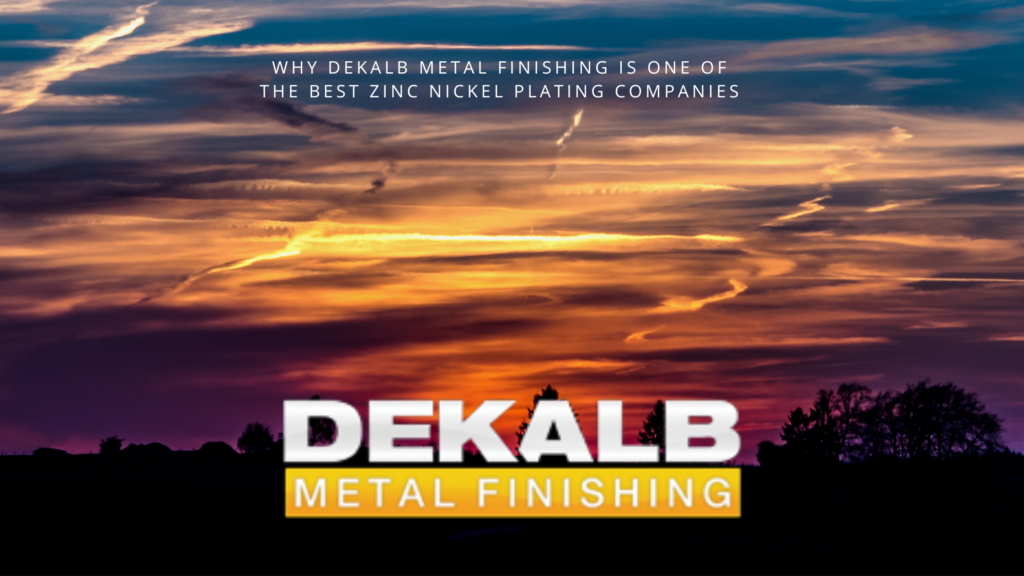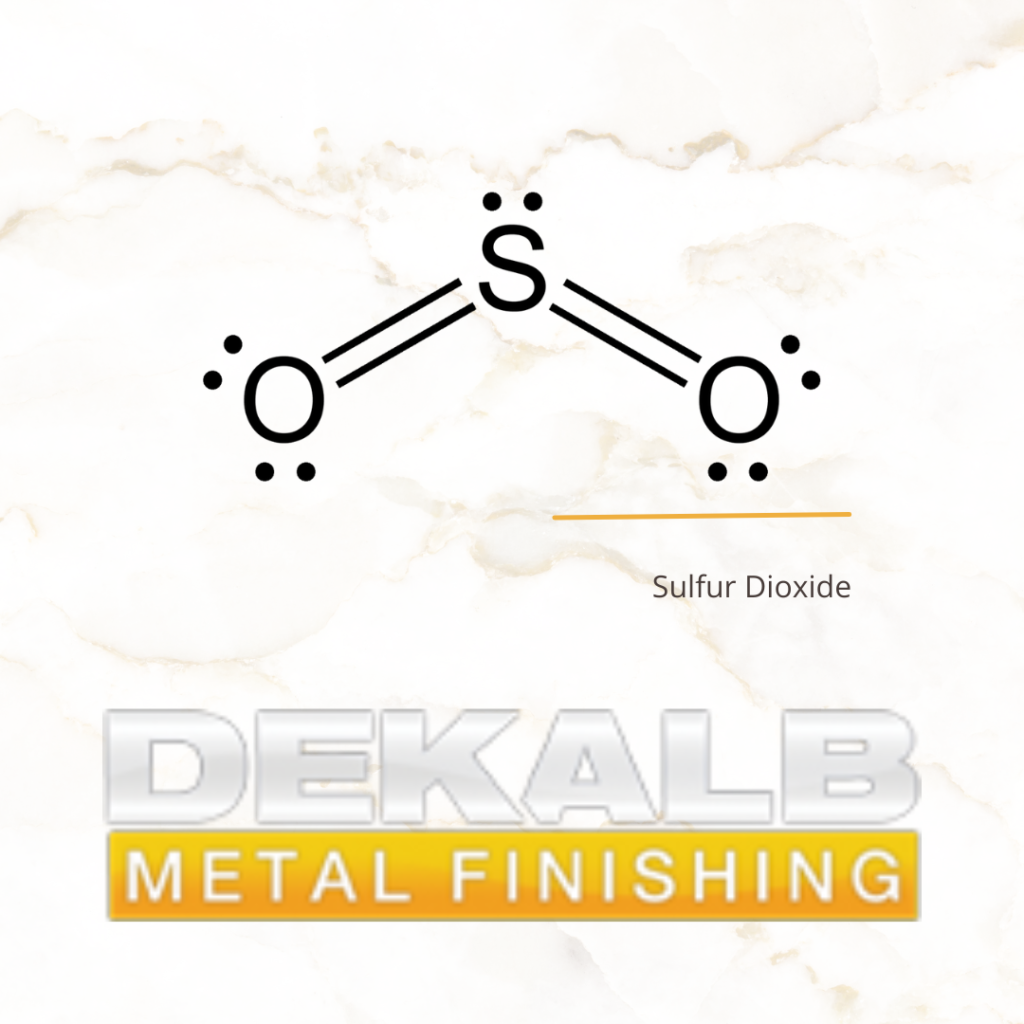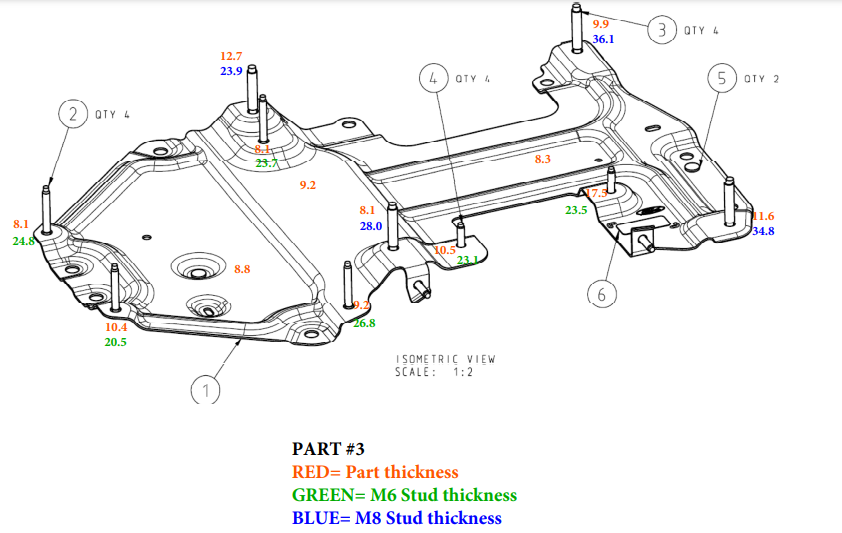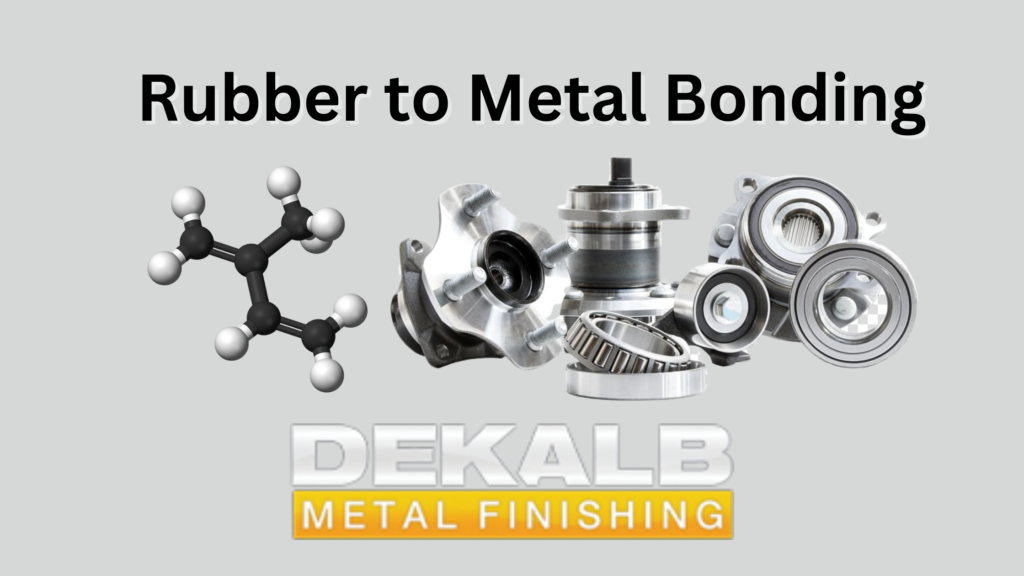Posts by Leslie Westphal
Why DeKalb Metal Finishing is one of the Best Zinc Nickel Plating Companies
For over 80 years, DeKalb Metal Finishing has long been considered one of the best zinc nickel plating companies in the United States. Here are a few reasons why: Quality of Service: DeKalb Metal Finishing excels in providing high-quality zinc nickel plating services, ensuring that the finished products meet or exceed industry standards and customer…
Read MoreWhat is Kesternich Testing?
Kesternich testing, also known as Kesternich corrosion testing, is a method used to evaluate the corrosion resistance of metallic materials, including plated surfaces. The test is named after the German engineer Wilhelm Kesternich who developed the method. The Kesternich test is specifically designed to simulate the corrosive effects of acidic atmospheric environments on metals. This…
Read MoreKey Factors in Zinc Nickel Plating Services
When customers are seeking zinc-nickel plating services, they typically look for several key factors to ensure that their specific requirements and quality standards are met. Here are some common considerations: 1. Corrosion Resistance: Zinc-nickel plating is often chosen for its superior corrosion resistance compared to other types of coatings. Customers prioritize service providers that can…
Read MoreWhat is a Micron and Why They Are Misleading in Plating
Before we talk about plating distribution, let’s first understand what a micron is. A micron is a unit of length equal to one millionth of a meter; a micrometer. In the plating world, this results in a very thin layer of plating. Most plating specs call for 5 microns, 8 microns, or 12 microns as the minimum plating…
Read MoreWhy is Zinc Nickel Electroplating Used on Parts for Rubber to Metal Bonding?
Zinc-nickel electroplating is commonly used on parts for rubber to metal bonding due to its excellent corrosion resistance and compatibility with rubber adhesion. Here are a few reasons why zinc-nickel electroplating is favored in such applications: Corrosion Resistance: Zinc-nickel alloy coatings offer superior corrosion resistance compared to other plating options like pure zinc or cadmium.…
Read MoreWhat Makes Zinc Nickel Electroplating Different?
Zinc nickel electroplating is a specialized electroplating process that involves depositing a coating of zinc-nickel alloy onto a metal surface. The primary difference between zinc-nickel electroplating and traditional zinc electroplating is the composition of the coating. Here are some key characteristics that differentiate zinc-nickel electroplating: Alloy composition: Zinc-nickel electroplating involves the deposition of an alloy…
Read MoreZinc-Nickel Plating Specification Highlight: FORD – WSS-M1P87
At DeKalb Metal Finishing, we care about closely following and meeting the specifications set forth by the automotive industry. This is a primary reason why we have become specialists in understanding the OEM specifications created for plating automotive parts. The most common questions we get as zinc nickel electroplating experts are regarding Zinc-Nickel (Zn-Ni) plating…
Read MoreWhy Is the NAVISTAR – MPAPS G22 Specification Important to Automotive Part Manufacturers and Zinc Nickel Plating?
The NAVISTAR-MPAPS G22 specification outlines the requirements for the materials and manufacturing processes used in the production of engine components for Navistar diesel engines. Automotive part manufacturers who produce engine components for Navistar diesel engines need to be familiar with this specification to ensure that their products meet Navistar’s quality standards and are compatible with…
Read MoreWhy Is IATF 16949 Certification Better than Other Quality Certifications?
At DeKalb Metal Finishing, we are proud to have been a metal finishing company for over 70 years and we take our role as specialists in the automotive parts plating sector very seriously. Throughout our company’s existence, we have placed a high priority on quality, quality management, and customer satisfaction. This is a key reason…
Read MorePassivates versus Chromates and the Effect on the Environment – A Finishing and Protection Process Discussion
At DeKalb Metal Finishing we strive to be as environmentally friendly as possible in what we do. Because we work with Zinc Nickel Alloy, Zinc Iron Alloy and Pure Zinc for metal finishing, we talk a lot about finishing specifications and finishing protection. Related to the environmentally friendly side of things, when we talk about…
Read More









